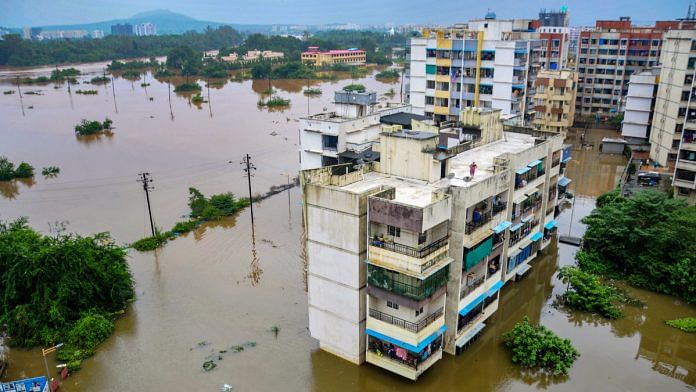Where men can’t live, gods fare no better.”
Cormac McCarthy rightly wrote in his 2007 Pulitzer-prize winning novel The Road, describing the arduous journey of a man and his son amidst chaos and destruction in a post-apocalyptic world, fighting for their survival, sanity and, if possible, salvation.
It doesn’t seem like fiction if we take a mere glance at the recent report of the Intergovernmental Panel on Climate Change (IPCC) about the certain future that awaits us. Predicting that extreme weather events will intensify as well as become more frequent, the reports also hint at the extinction of many flora and fauna with a drastic global change of landscape by the end of this century.
The domino effect already seems to have started and the results are showing up: the heatwave that killed many in the US; the erratic rainfall across Europe and many more. Even the glacial outbursts in Uttarakhand early this year can be seen as the compounded effects of climate change. The report claims that even with the strictest restrictions on carbon emissions, the average global temperature rise limit of 2°C will be breached by the end of this century. While 2°C doesn’t sound a lot in the practical sense, it is the ‘average’ keyword that should raise the bells, which implies that the extremes are unbounded. Sub-zero winters and roasting summers of nearly 60°C in our national capital are now a stark possibility.
It is not just the temperature that is worrisome, but the cascading effect it generates – excessive rains, prolonged droughts, melting glaciers and even disrupted ocean currents which play a pivotal role in maintaining temperatures across the globe as well as the submerging of low-lying coastal areas of the world, many of which are densely populated. All this is in addition to the extinction of numerous marine species and even of some migratory birds. The resulting resource crunch would inevitably cause public disharmony, misery and aggravated poverty. All of it will ultimately manifest as a law-and-order issue, leading to even bigger administrative and political challenges. The world we live in is essentially becoming a pressure cooker with a faulty air vent.
Also read: Surviving the next 50 years is an existential crisis – 3 things we must do now
So, what can we do?
In a critical time like this with the window of opportunity closing so fast, every bit of effort counts. India, being the third-largest carbon emitter, is a key stakeholder in any negotiation. But it is also true that the lion’s share of responsibility should fall on the countries that have been historically the largest emitters and thus, the biggest contributors to the current crisis. It should be the moral obligation of these nations to cooperate with the developing world on green technology and renewables. This globalised world is shared by all with each member shackled to the other economically, politically as well as environmentally. Surviving today with mutual support and compromises is always better than living later under the dead weight of ethical regrets.
IPCC reports have been trendsetters since their inception in 1990. The first report ended with the framing of the UN Framework Convention on Climate Change; the second report led to the formation of the Kyoto Protocol; the fourth report won the Nobel Peace prize and the fifth report set up the background for the Paris Convention. Now with the sixth report out, with even more direct implications and certainties, fresh negotiations are likely to follow.
India should, on one hand, bat to get a greater share of the carbon budget to meet its development needs. On the other hand, India parallelly should also invest in and encourage alternative energy sources with a renewed vigour. NITI Aayog’s step to establish fast-charging stations for electronic vehicles (EVs) and a roadmap on hydrogen economy should be capitalised on with quick decision making and implementation. Indian Railways has also rolled out a hydrogen fuel plan to power its locomotives. More work needs to be done on biodiesel, ethanol-based fuels and their commercial viability. All this calls for investment in research and development (R&D) on a war footing: something that all governments have traditionally shied away from. India should also expedite its nuclear energy programme to cut short its crude and coal requirements. This will help us reach our climate goals as well as ease fiscal and BoP pressures.
From the looks of it, the pressure in our cooker is rising to unprecedented levels, with a possibility of the vent blowing off. But as the old man in ‘The Road’ shoots a flare high up in the sky and realises how hope shines new ways for us, we, too, must do our tiny individual bits and hope for the best.
After all, miracles do happen sometimes.
Prabhat Kumar Singh is a student of Indian Institute of Technology, Kanpur. Views are personal.




